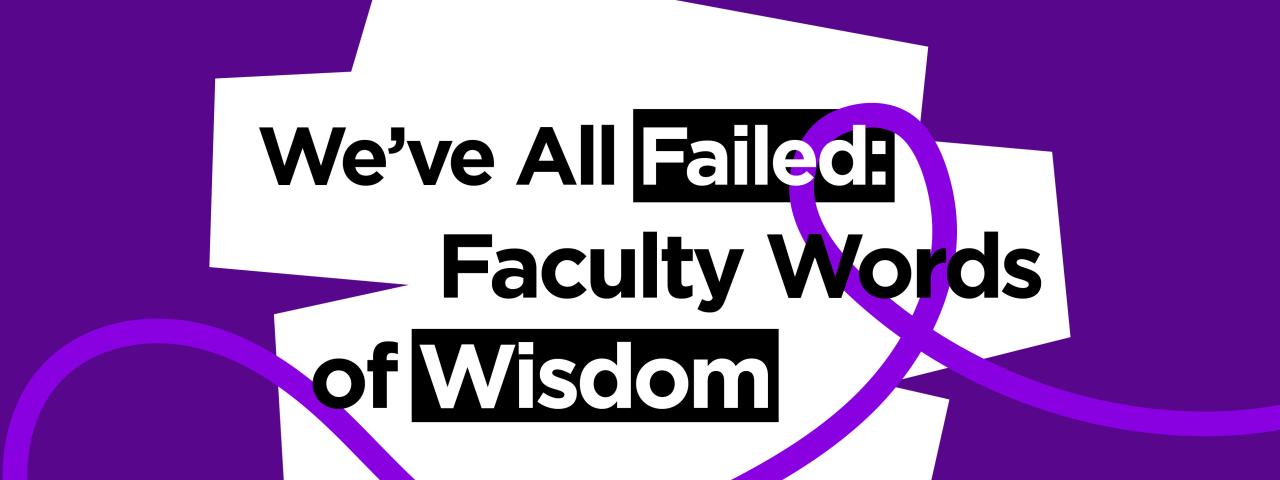
Getting a bad grade can seem like the worst thing in the world. It’s something we rarely share with others, because of the shame we attach to failure. But with the distance of time, our failures or missteps can find their place in the narrative of our success. NYU Shanghai faculty share their advice for students on how to pick yourself up and keep on going.
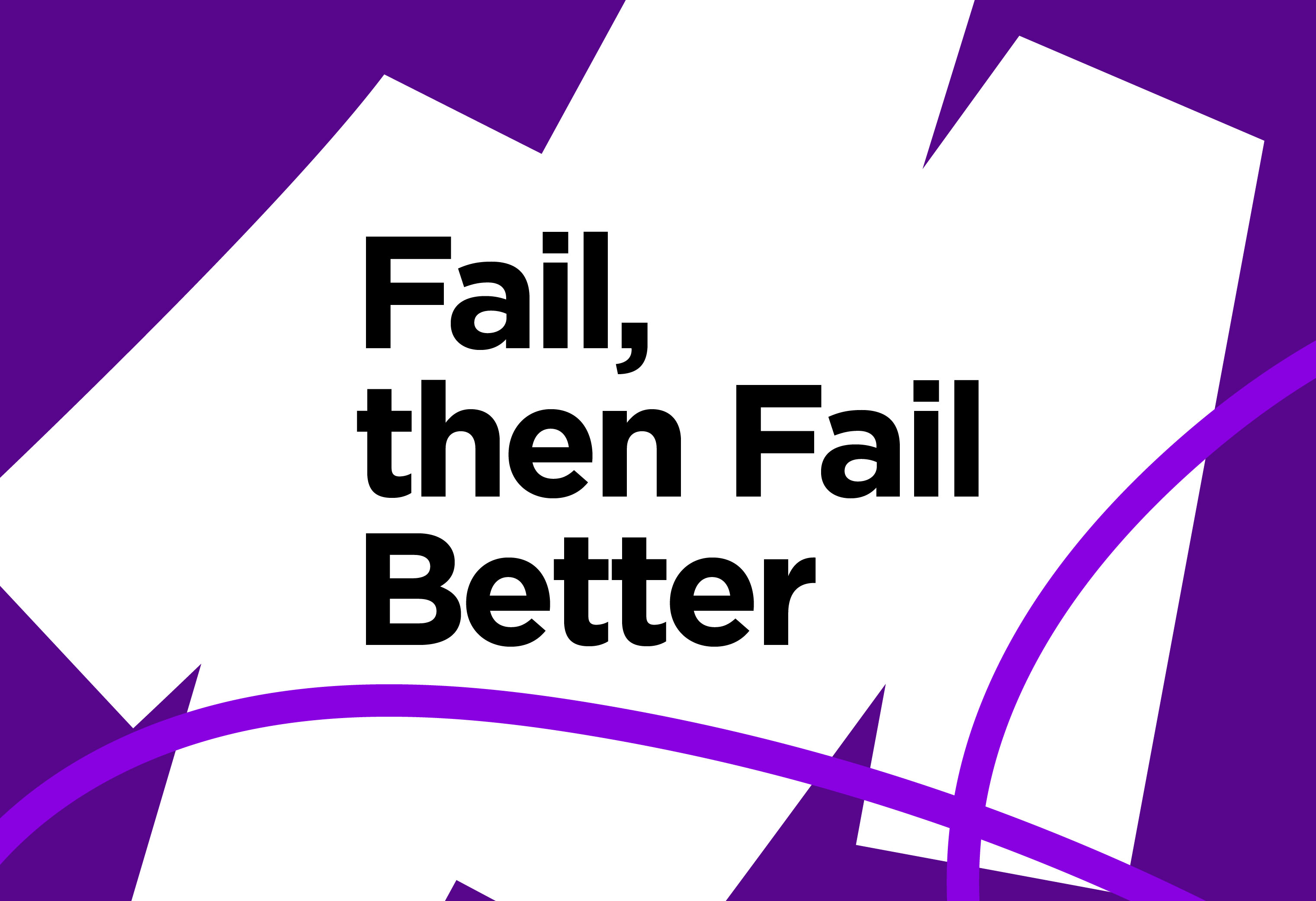
Fail, then Fail Better
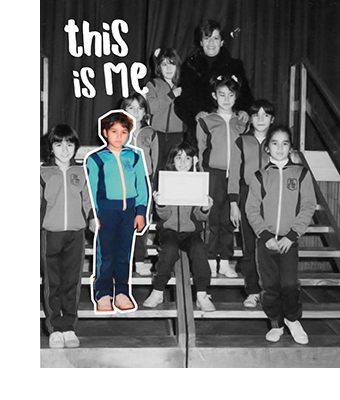 Associate Arts Professor of Interactive Media Arts Marcela Godoy still remembers the failing grade she got in middle school in a handicrafts class on an embroidery project gone wrong. That didn’t stop her. “I kept trying to make things with my hands, even though I had this bad grade,” she says. Now she teaches courses like Remade in China and Interactive Fashion at NYU Shanghai and co-founded the Remakerspace. “I failed so many times,” she says, but she likes to talk about her failures, “because I feel like it’s an opportunity for you to learn.” If you do everything right, she says, you don’t learn that much. “But when you fail, you realize your mistakes and you improve them. Then next time you do it better.”
Associate Arts Professor of Interactive Media Arts Marcela Godoy still remembers the failing grade she got in middle school in a handicrafts class on an embroidery project gone wrong. That didn’t stop her. “I kept trying to make things with my hands, even though I had this bad grade,” she says. Now she teaches courses like Remade in China and Interactive Fashion at NYU Shanghai and co-founded the Remakerspace. “I failed so many times,” she says, but she likes to talk about her failures, “because I feel like it’s an opportunity for you to learn.” If you do everything right, she says, you don’t learn that much. “But when you fail, you realize your mistakes and you improve them. Then next time you do it better.”
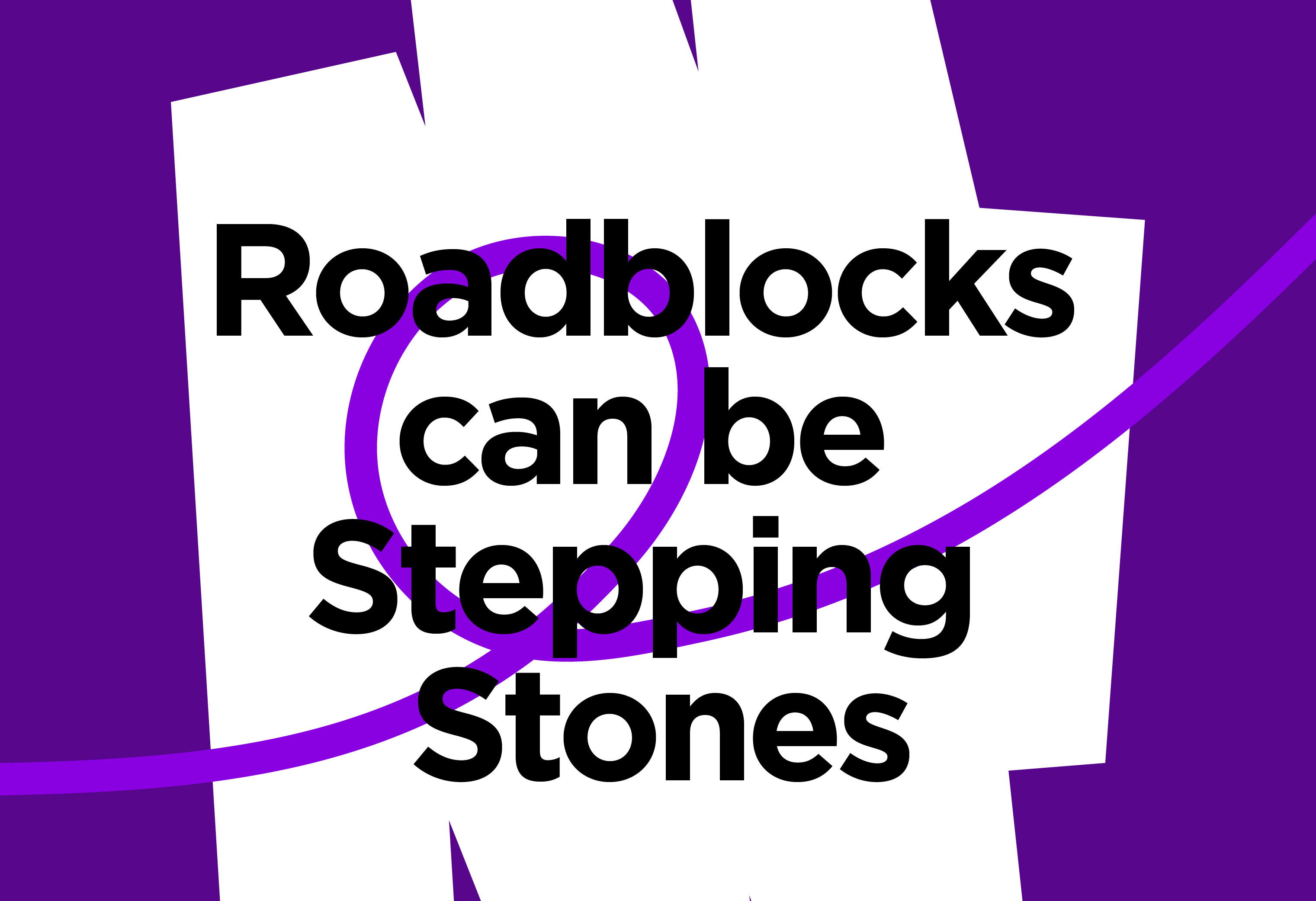
Roadblocks can be Stepping Stones
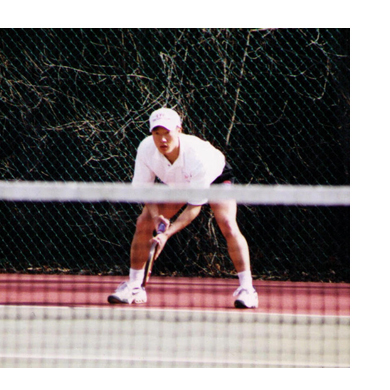
Associate Professor of Practice in Business Raymond Ro’s faculty bio describes him as a professor, engineer, and lawyer. In fact, he has worn many other hats as well, including child skateboarding star, aspiring tennis player, would-be medical doctor, and groundbreaking biotech entrepreneur. But over and over and over, he says, due to circumstances out of his control, Ro was forced to pivot and carve out new paths. “For some people, their paths in life are quite linear. They go from point A to point B, and life is good for them,” he says, adding, “I'm an example of a person who has trekked a totally nonlinear path. There's been roadblocks and detours, mountains and valleys.”
Following his girlfriend to her native China was yet another detour for Ro, who was then unable to practice law in the country. Serendipitously, he went into teaching because he needed a visa, but quickly fell in love with the profession. “I feel like it’s my calling. I found what it is that I'm meant to do,” he says. Thinking back on all the twists and turns his life has taken, he says he wouldn’t change any of it and that he is grateful for every experience--good and bad. “I couldn’t write a better script for myself,” he says. “I needed those roadblocks to get to that next stage. It was not an obstacle, rather it was an opening, a stepping stone, to something else.”
To students who have experienced setbacks, he says: “Learn from it. It makes you stronger and it helps you to put things in perspective. My recommendation is to follow your passions, and it will eventually lead you to your purpose.”
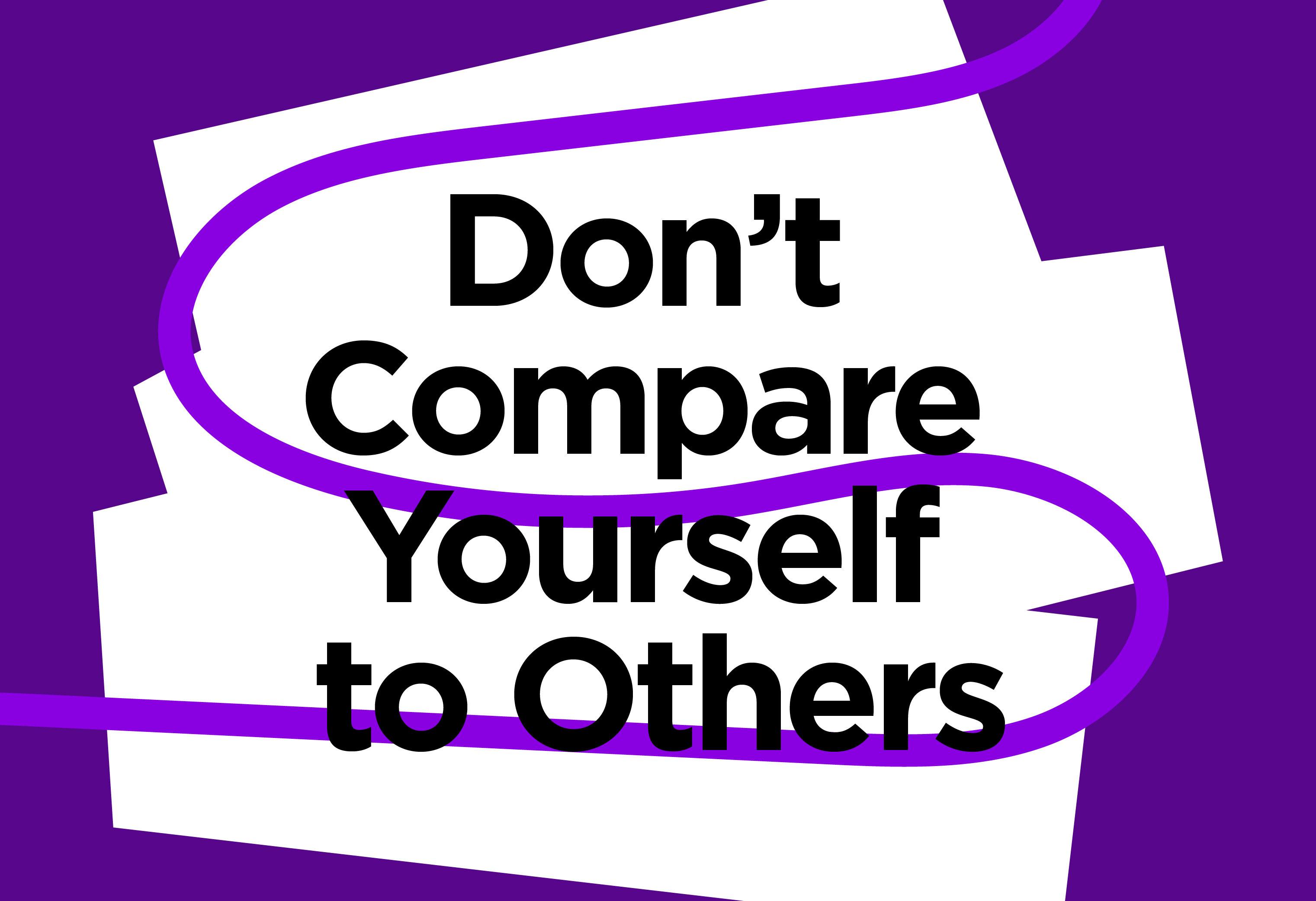
Don’t Compare Yourself to Others
 English for Academic Purposes Lecturer Kelly Donovan’s listening and speaking skills in Mandarin were really good, she says, but her teacher had not taught her and her classmates to read or write. The result was that upon arriving in Beijing for a university program, she was way behind her classmates. “I was very angry, I was very upset, I was very frustrated,” she remembers.“It was just bad grade after bad grade, until I spent enough time to build that knowledge.” Up to that point, she had been a straight A student. “Suddenly I wasn't able to pass a written exam, I wasn't able to read a menu in China. It was very disheartening.” she says. What got her through that low point, she says, was focusing on her own improvement. “There's always going to be somebody who's better at a subject than you,” she cautions. Comparing yourself to your past self, rather than to others, will help you put things in perspective and see your own progress.
English for Academic Purposes Lecturer Kelly Donovan’s listening and speaking skills in Mandarin were really good, she says, but her teacher had not taught her and her classmates to read or write. The result was that upon arriving in Beijing for a university program, she was way behind her classmates. “I was very angry, I was very upset, I was very frustrated,” she remembers.“It was just bad grade after bad grade, until I spent enough time to build that knowledge.” Up to that point, she had been a straight A student. “Suddenly I wasn't able to pass a written exam, I wasn't able to read a menu in China. It was very disheartening.” she says. What got her through that low point, she says, was focusing on her own improvement. “There's always going to be somebody who's better at a subject than you,” she cautions. Comparing yourself to your past self, rather than to others, will help you put things in perspective and see your own progress.
Senior Chinese Lecturer Xiaobo Shui was an excellent student in high school, but she failed math over and over. She never felt too stressed about it though because she already knew that advanced math wouldn’t be something that she would need to use in her future life. Now when her students express regret over a poor performance on a test, she tells them. “It’s okay, it’s just a test. Compared to your whole life, it is a mini problem.” She reminds students that asking for help from professors will always be helpful.
In the first class of the semester, Visiting Assistant Professor of Practice in Mathematics Eric Endo reminds his students: “It’s okay to not be okay.” There are bad days and bad weeks, he tells them, but you are never alone, your classmates, friends and professors are there to help you. He says it has helped him to remember that everyone goes at their own pace. “Don't push yourself too hard,” he says, “the campus life is to arouse your curiosity and enjoy discovering new things.”
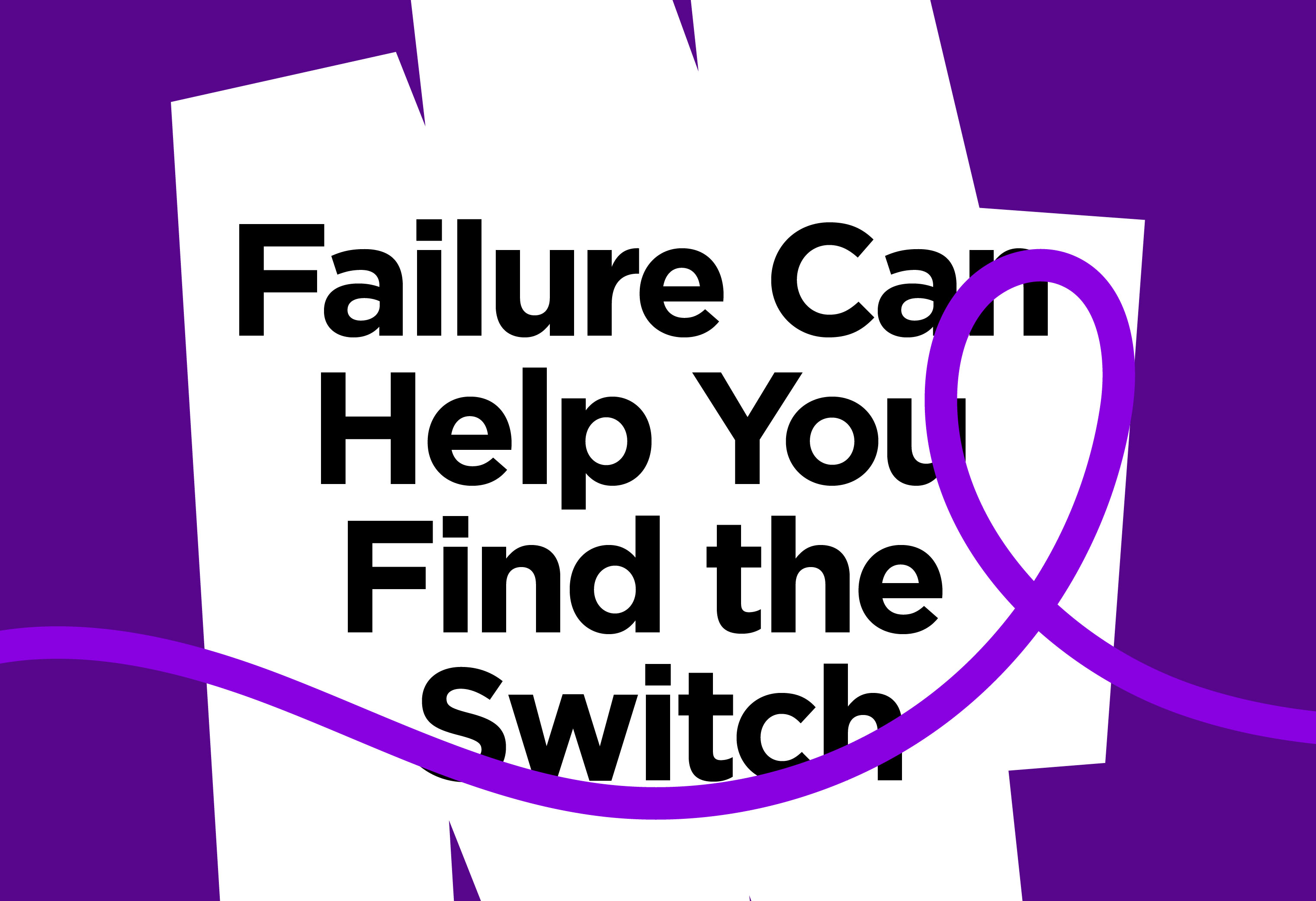
Failure Can Help You Find the Switch
 When Associate Professor of Economics Emiliano Catonini moved from his small hometown to Milan for university, it was his first time living away from his family. “I was thinking, if I just go to class, that would be enough to succeed,” he says. “I was the best in the class in high school, [so] why wouldn’t the same apply to college?”
When Associate Professor of Economics Emiliano Catonini moved from his small hometown to Milan for university, it was his first time living away from his family. “I was thinking, if I just go to class, that would be enough to succeed,” he says. “I was the best in the class in high school, [so] why wouldn’t the same apply to college?”
He was in for a shock when he failed his programming exam. “In front of these failures, I think it's about finding a switch,” he says. That ‘switch’ is how he describes changing the way he studied. “[I started] to see the material from a different perspective, in an active way. Really wrestle with the material, not just sit there passively and read [it] many times. It involves asking yourself a lot of questions, more than asking questions to the professor.”
That was Catonini’s first experience with ‘flipping the switch’ but it wouldn’t be his last. As his career progressed, he tried a number of different careers and disciplines before returning to academia to do a PhD in economics, and then finding his calling in game theory. “I changed so many times what I wanted to do in my life,” he says. “You can do that too. But first try out whatever you are doing. Try it hard.”
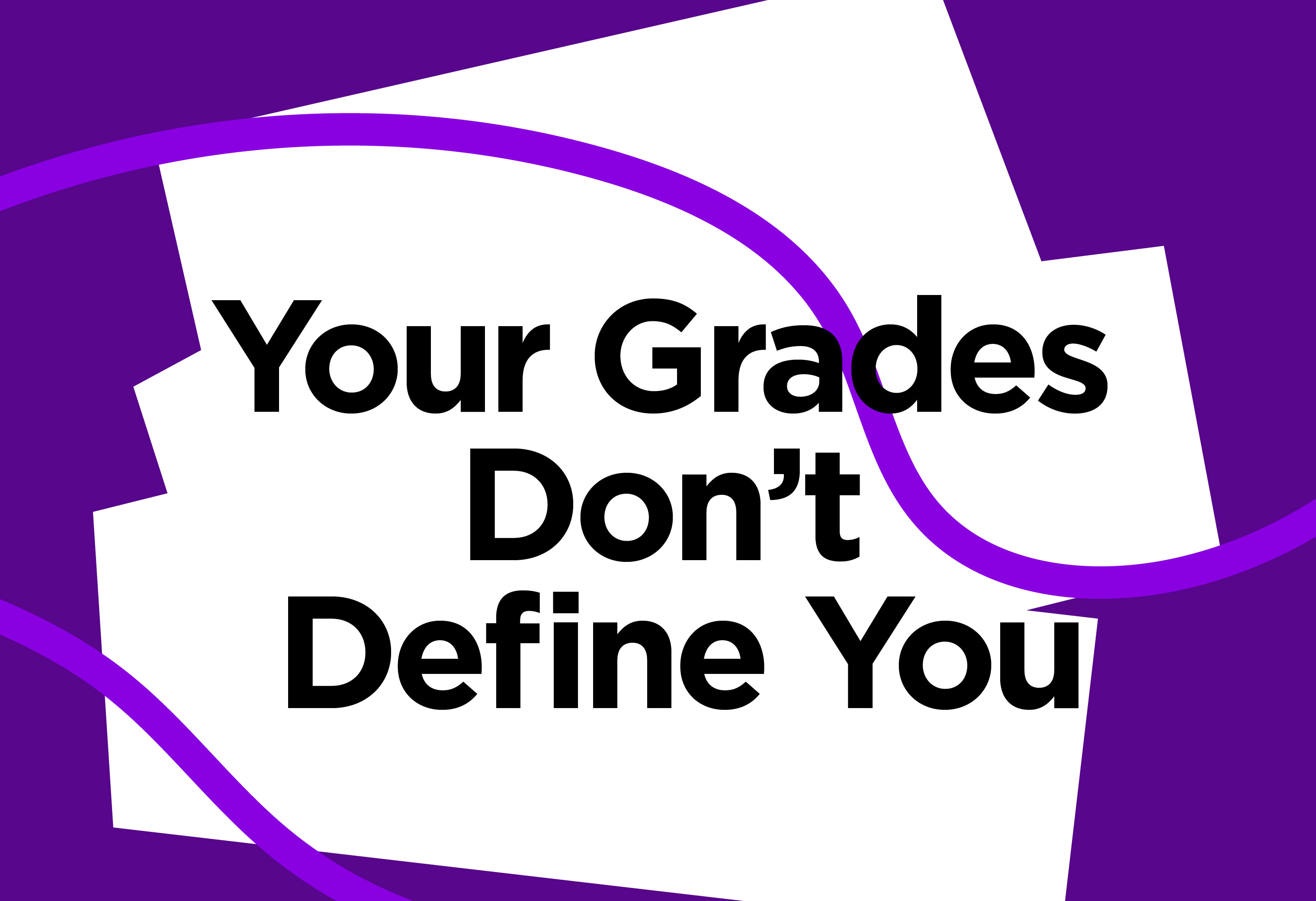
Your Grades Don’t Define You
In high school, Assistant Professor of Practice in Interactive Media Business (IMB) and Social Sciences Anna Hopper thought she might major in math or engineering. Today, she uses quantitative methods in her academic research. But in her first semester of college, a bad grade in multivariate calculus deterred her from pursuing those majors and nearly turned her off from math entirely. “I wish that I hadn't let that be the deciding factor,” she says. “I didn’t give myself a chance to try it out.”
It took some years and some maturity for Hopper to understand that she got that poor grade because the course was too advanced for her level at the time. “Rationally now that I look at it from some separation, I can recognize that my high school courses didn’t prepare me for that level class,” she says. Later on she went on to take many math and statistics classes, with much better results.
Now when students who aren’t happy with their grades tell her, ‘I’m not a C student,’ she reminds them, “You’re not the grade. You can’t let it define you, because you’re a lot more than a grade at a single point in time.”
Hopper developed a trick to help her keep her final grades from affecting her decisions for the near future. “I stopped checking my [exam] grades right away,” she says. “I usually had a sense of how I was doing but the moment of checking them was very anxiety-inducing, so when it came to the final grade, which usually was impacted by the final exam or project or something, a lot of times, I would just not look at the grades right when they were posted.” Hopper says assignment and project grades are an important way to assess how you’re doing in a course and to gain feedback for improvement, so she wouldn’t advise ignoring those. But if you feel confident that you passed your finals, do you really need to know the exact score immediately, she asks. After all, she says, if you don’t know your exact grades, you can’t let them define you.
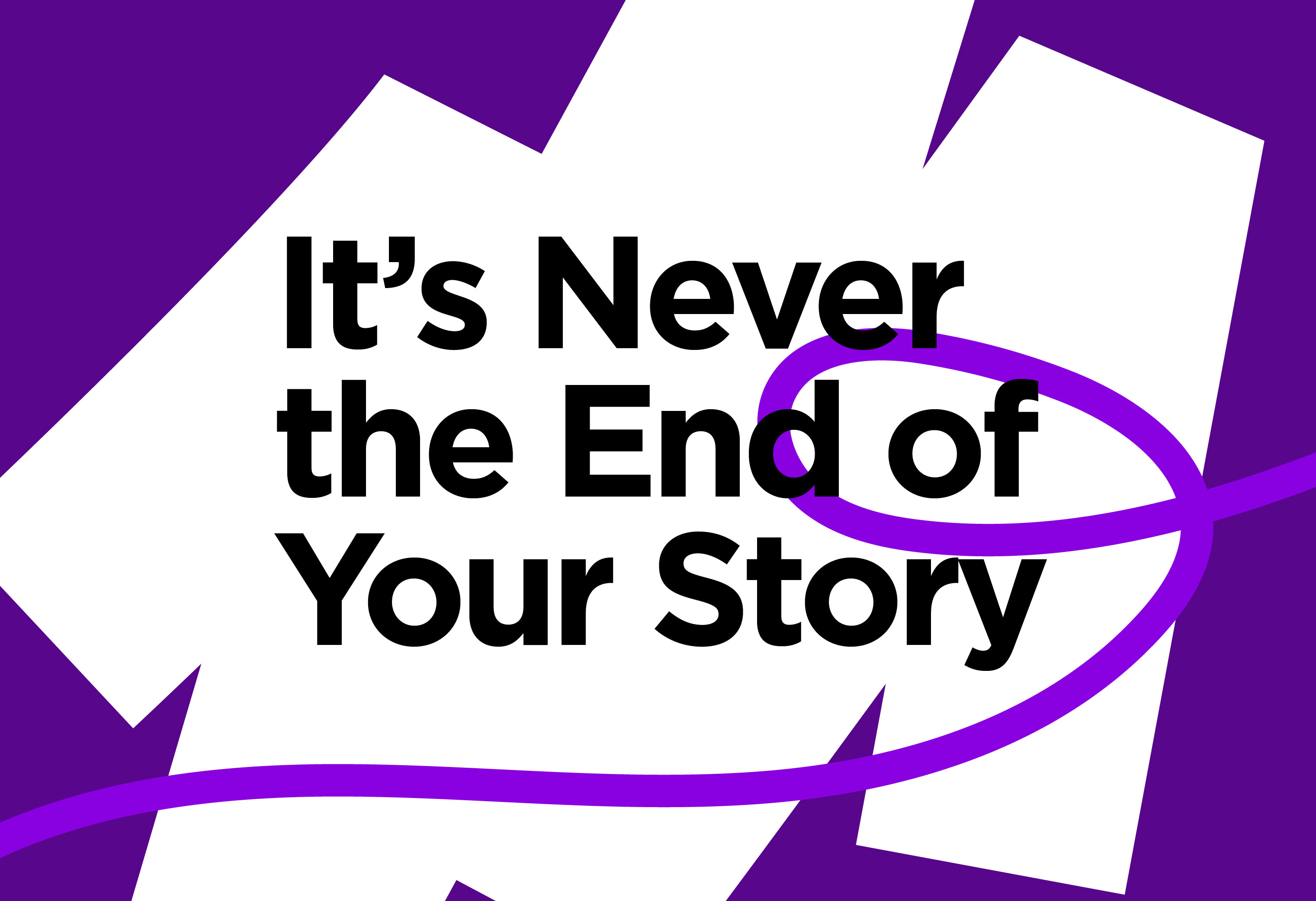
It’s Never the End of Your Story

When Associate Professor of Practice in Economics Weng Weiwei unexpectedly failed the gaokao, China’s college entrance exam, in her senior year of high school, she cried for two days, partly because she felt she hadn’t lived up to her parents’ expectations. After she was done crying, though, Weng set to work making a strategy. She knew she’d have to attend a second-tier university, but she didn’t let that stop her from dreaming big. “I knew that undergrad was not my end point. That could only be the starting point for something else,” she says. What's done is done, she remembers thinking. "I can't change it. So I’m not going to think about ‘What if’- that kind of thing. I just think about what I can do.”Weng carefully researched and planned for her master’s degree education. “I knew I was in a disadvantaged position, so I should stand out from my peers and then I might get admitted to a so-called good school for master’s study.” That mind shift proved to be useful for Weng. She went on for her master’s and PhD degrees at University of Hong Kong.
Her advice to students who hit a roadblock? “Accept the facts first and think about what you can do now,” she says. “You will feel less stressed, because you’re focusing on something that is more productive. Whether it is a problem or it is a possibility, that’s up to you,” she says.
Good luck on finals!

